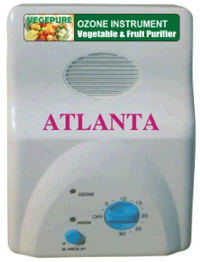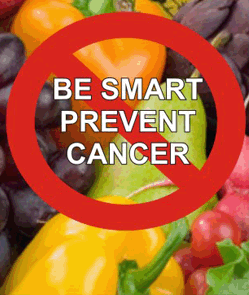 read more............
read more............Vegepure
Ozone Instrument- Vegetable & Fruits Purifier
More than 50 pesticides are used on Broccoli
110 pesticides are used over Apples
70 pesticides are sprinkled on to Bell Peppers
Foods like Meat, Animal Fats, Eggs, Milk, Cheese etc. have a tendency to cause concentration of pesticides so the limited use of these foods are recommended.
Food that contains Toxins, Chemicals & Steroids of any kind
Fruits
Vegetables
Canned Food
Fruit Drinks
Packed Juices
Fresh Juice
Carbonated Drinks
Jams
Sauce
Pickles
Non Veg
Milk
Fresh Cream
Cakes
Pastries
Junk Food
Pulses
and the list continues.............
"Exposure to some pesticides during infancy, even at very low levels, can lead to serious life-long consequences if the pesticides disrupt hormone-driven developmental processes."

Voltage : AC-198-242V, 50Hz
Power : 20 W
Ozone : 600mg/hr
Ions : 3 X 106N/Cm2
Salient Features of Vegepure:
- Removes dirt Artificial Colour on the surface of Fruits & Vegetables.
- Detoxifies the fruits & Vegetables by removing pesticides and preservatives residue.
- Kills parasites, their eggs and germs.
- Remove anti-Biotic and harmones remaining in meat, fish & sea food.
- Enhances shelf-life of food.
- Easy to operate.
- Loniser Additional.

Artificial Growth Hormones in Non Veg
In 2005, 32.5 million cattle were slaughtered to provide beef for US consumers . Scientists believe about two-thirds of American cattle raised in for slaughter today are injected with hormones to make them grow faster and America’s dairy cows are given a genetically-engineered hormone called rBGH to increase milk production. These measures mean higher profits for the beef and dairy industries, but what does it mean for consumers? Although the USDA and FDA claim these hormones are safe, there is growing concern that hormone residues in meat and milk might be harmful to human health and the environment.
What's in the Beef?
According to the European Union’s Scientific Committee on Veterinary Measures Relating to Public Health, the use of six natural and artificial growth hormones in beef production poses a potential risk to human health. These six hormones include three which are naturally occurring—Oestradiol, Progesterone and Testosterone—and three which are synthetic—Zeranol, Trenbolone, and Melengestrol.
The Committee also questioned whether hormone residues in the meat of "growth enhanced" animals and can disrupt human hormone balance, causing developmental problems, interfering with the reproductive system, and even leading to the development of breast, prostate or colon cancer.
Children, pregnant women and the unborn are thought to be most susceptible to these negative health effects. Hormone residues in beef have been implicated in the early onset of puberty in girls, which could put them at greater risk of developing breast and other forms of cancer. The European Union’s Committee reported that as of 1999, no comprehensive studies had been conducted to determine whether hormone residues in meat can be cancer-causing.
Scientists are also concerned about the environmental impacts of hormone residues in cow manure. Growth promoting hormones not only remain in the meat we consume, but they also pass through the cattle and are excreted in their manure. When manure from factory farms enters the surrounding environment, these hormones can contaminate surface and groundwater. Aquatic ecosystems are particularly vulnerable to hormone residues. Recent studies have demonstrated that exposure to hormones has a substantial effect on the gender and reproductive capacity of fish, throwing off the natural cycle.
Despite international scientific concern, the United States and Canada continue to allow growth promoting hormones in cattle. The European Union, however, does not allow the use of hormones in cattle production, has prohibited the import of hormone-treated beef since 1988, and has banned all beef imports from the US. The ban has been challenged by the US at the World Trade Organization and debate still rages between the US and the EU over its validity.Milk available at the Stores
Meat and dairy products form the basis of many Western diets. In fact, the popular perception in west is that a portion of meat and two glasses of milk every day will ensure good bones and muscle mass & the picture is not different here in India. However, many people are unaware of what actually goes into the cartons of milk they get from the local supermarket, or the cuts of beef they grill on the barbecue.
- Antibiotics given to cows to treat mastitis results in antibiotic residues in milk. Apart from causing health problems in those who drink this, it can lead to the development of antibiotic resistance amongst bacteria present in the person's body.
- Scientific studies link rBGH to cancer citing the fact that the presence of rBGH in the cow's blood stimulates production of another hormone (Insulin-Like Growth Factor) in the cow and traces of it are found in its milk. Since this hormone is also active within humans, it can lead to uncontrolled cell division or cancer.
Hormone residues in cow manure enters the ecosystem. Manure from factory farms enters the soil in the area and the surface and groundwater in that area. Apart from impacting the gender and reproductive capacity of fish and the aquatic ecosystems, there are concerns about traces of growth hormones finding way into the food we eat, though there are no conclusive studies to support that.
Modern food has given us Toxins with taste & convenience. This is a dilemma that urbanisation has forced us to eat the food that is easily accessible or easy to make. Due to shortage of time we are forced to ignore the effects of these kind of foods towards our health.
At Grinning Planet, we think the high level of toxic pesticides used to grow most of the world's food is probably the worst idea man ever came up with. Consumers are quickly recognizing that the residual levels of pesticides in food—especially pesticide residues in non-organic food—are contributing to the chemical "body burden" in all of us. Chemical effects in the human body are worth worrying about, especially when it comes to kids, who are more affected than adults. To that end, we think pesticides in food are worth avoiding as much as possible.
By now, most people understand that buying organic food is a great way to reduce one's exposure to pesticides in food. But that avenue may not be possible for everyone or in every food choice. Perhaps you can't always afford the extra cost often associated with organic food, and organic fruits and vegetables may sometimes be unavailable in your grocery store.
There is a good compromise solution! Today's article tells you how to minimize your exposure to pesticides in food without going fully organic—by making smart food choices based on which fruits and vegetables have the highest and lowest levels of pesticide residue.
Health Effects
Before we get to the good stuff—the list of foods with the most and least pesticide residue—here's a quick recap of some of the harmful things pesticides can do to us humans:
- cause low birth weight and birth defects;
- interfere with child development and cognitive ability;
- cause neurological problems;
- disrupt hormone function;
- cause a variety of cancers, including leukemia, kidney cancer, brain cancer, and non-Hodgkin's lymphoma.
Children and fetuses suffer more of these effects from pesticides than do adults because children's bodily systems are still developing. Additionally, children are much less able than adults to detoxify most pesticides. Pesticide effects in the unborn and in infants can have lifelong effects. For instance, the risk of neurological or behavioral problems following early pesticide exposure extends through puberty, as the reproductive system, nervous system, and brain continue to grow.
It's also worth noting that farm workers suffer more than their share of bad pesticide effects; and birds, beneficial insects, and other wild critters are impacted, too.
Pesticide exposure can occur through means other than food intake, but research shows that reducing pesticide intake via food has an immediate observable effect on body-burden levels of pesticides. So, when in the produce aisle, pick organic when you can, and when you can't, try to avoid foods with high pesticide residues and substitute those with low pesticide residues.
BREATH PURE - EAT PURE - DRINK PURE, ADD YEARS TO YOUR LIFE ........
PERFECT TECHNOLOGIES (REGD.)
221, Vardhman Sunder Plaza, Plot No. 12, Sector - 12 Market, Dwarka, New Delhi - 110075
Ph. : 65463719. Mobile : 9910600833, 9313463719, 9810600833










